Unlock the secrets to healthy hair in India! Learn best practices for a flourishing scalp. Read more!
In a country like India, where hair is often seen as a symbol of beauty and health, taking care of your
scalp and hair is more than just vanity; it's a vital part of your overall well-being. From age-old Ayurvedic remedies to modern-day advancements, there's a wealth of information out there.
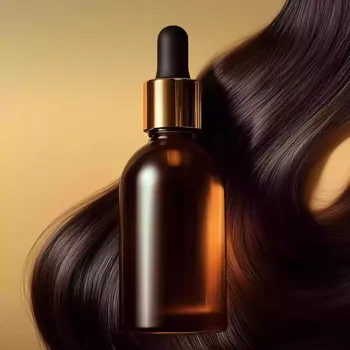
But with so much advice floating around, it can be tricky to separate fact from fiction. This article will guide you through the most effective practices to achieve a healthy scalp and lustrous hair, suited for the Indian climate and lifestyle.
Understanding scalp and hair types for personalized care routines
Before diving into specific practices, it's crucial to understand your scalp and hair type. Just like skin, scalps can be oily, dry, or normal. Similarly, hair can be fine, thick, straight, wavy, curly, or coily.

Identifying your unique characteristics is the first step towards creating a personalized hair care routine. Oily scalps tend to produce excess sebum, leading to greasy hair. In contrast, dry scalps often feel itchy and flaky.
For hair, understanding its texture and porosity (ability to absorb moisture) will help you choose the right products and treatments. A simple test to determine hair porosity involves dropping a strand of your hair into a glass of water.
If it sinks quickly, your hair has high porosity and absorbs moisture easily; if it floats, your hair has low porosity and repels moisture.
Identify hair type, choose gentle products, rinse well
Once you identify your hair and scalp you can choose the shampoos and oil for the hair. Always dilute any shampoos or cleaning products when using them. This helps in distributing the product evenly to the scalp and root.
Always consider sulphate free options, as sulphate is known to strip the hair of the essential vitamins and oils. This makes the hair to get further damaged. Do consider using water at ambient or slightly lukewarm temperature when washing the hair.
This allows to open up pores on the scalp and to help in easy wash. Do not keep shampoos on the hair for longer than advised. Rinse well so there is no residue.
Frequent hair washing can damage, find balance for healthy hair
Washing your hair too frequently can strip away natural oils, leaving it dry and brittle. Conversely, infrequent washing can lead to product buildup and scalp issues. Finding the right balance is key.
For oily scalps, washing every other day may be necessary, while dry scalps may only require washing once or twice a week. When shampooing, focus on cleansing your scalp rather than just the strands of your hair.
Gently massage the shampoo into your scalp using your fingertips to remove dirt, oil, and dead skin cells. Opt for a sulfate-free shampoo to avoid harsh chemicals that can damage your hair.
After shampooing, always use a conditioner to replenish moisture and detangle your hair, concentrating on the ends.
Proper shampooing technique for healthy hair
Shampooing might seem as simple as pouring shampoo and washing off the hair but there are a lot that goes when it comes to hair. Before you go for hair wash, gently comb your hair to remove any tangles or knots that might be present.
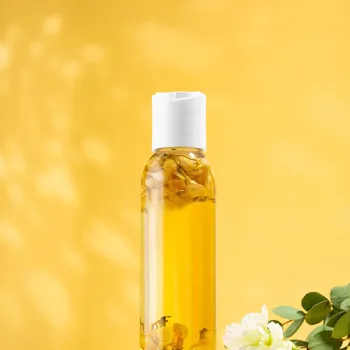
Start by wetting the hair completely, because dry hair do not absorb the product well. Take a tiny bit amount of shampoo, and rub on to your own palms to form a lather.
Gently massage the shampoo on to your scalp using finger tips, this ensures that the pores are opened and the product is evenly distributed. Ensure you do a gentle massage with the finger tips in circular motion . Do not use nails or rub roughly.
Oiling hair in India for growth, shine; coconut, almond, olive oils offer benefits
Oiling your hair is a time-honored tradition in India, and for good reason. Regular oiling can nourish your scalp, promote hair growth, and add shine. Coconut oil, almond oil, and olive oil are popular choices, each with its own unique benefits.
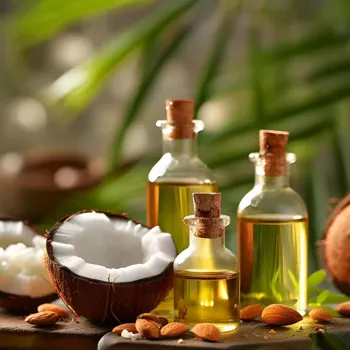
Coconut oil penetrates the hair shaft to reduce protein loss, while almond oil is rich in vitamin E, which promotes hair growth. Olive oil adds shine and moisture. Warm the oil slightly before applying it to your scalp and hair, and massage it in gently for a few minutes.
Leave it on for at least an hour, or even overnight, before washing it off. In addition to oiling, consider incorporating other natural remedies into your hair care routine. Amla (Indian gooseberry) is known for its high vitamin C content, which strengthens hair follicles.
Hibiscus can promote hair growth and add shine, while reetha (soapnut) is a natural cleanser.
Oiling hair promotes growth & health; choose oil based on hair type
Oiling you hair should always be a crucial component of your hair health routine. The oil nourishes the root of the hair and increases blood circulation in the scalp. This helps in promoting good hair growth and ensures longer health.

If you have dry hair, consider oiling your hair once every 3 to 4 days. If you have oily or greasy hair, consider oiling your hair once a week, or even less. People across India use a myriad choices of oil for their hair.
Coconut oil is easily available and has proven benefits and properties for the hair. Almond oil and Olive oil are also pretty good choices. Always warm the oil up before applying, but do not make it too hot.
Balanced diet with proteins, vitamins, minerals key for healthy hair
Healthy hair starts from within. A balanced diet rich in protein, vitamins, and minerals is essential for hair growth and strength. Protein is the building block of hair, so make sure to include plenty of protein-rich foods in your diet, such as lentils, chickpeas, nuts, and seeds.
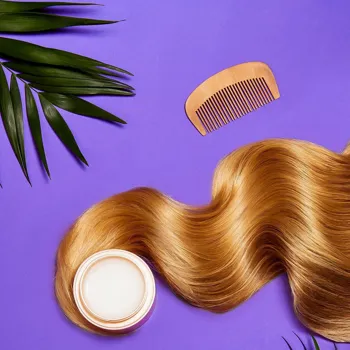
Iron deficiency can lead to hair loss, so consume iron-rich foods like spinach, dates, and fortified cereals. Vitamins A, C, and E are also crucial for hair health.
Vitamin A helps produce sebum to moisturize the scalp, vitamin C is an antioxidant that protects hair from damage, and vitamin E promotes scalp circulation. Don't forget to stay hydrated by drinking plenty of water throughout the day.
Water helps keep your scalp and hair moisturized, preventing dryness and breakage.
Diet impacts scalp and hair health, include proteins, vitamins, minerals, hydration
A diet plays a very important role in health for all parts of the body including the scalp and hair. A body requires proteins from the food, vitamins along with minerals as well. Make sure to include protein rich foods from lentils, nuts and other sources.
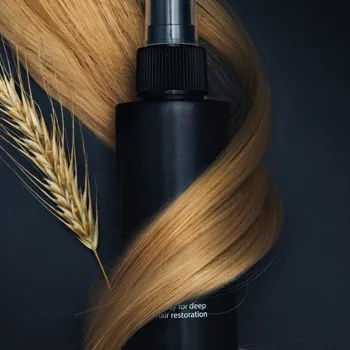
Also include leafy vegetables, dry fruits like dates. Hydration through consuming water in a adequate amount also improves the quality of hair. Drinking water at regular intervals is also suggested
Protect hair in harsh Indian climate from sun, pollution, humidity
The Indian climate can be harsh on hair, with intense sun, pollution, and humidity. Prolonged sun exposure can damage the hair shaft, leading to dryness, breakage, and color fading. Protect your hair by wearing a hat or scarf when you're out in the sun.
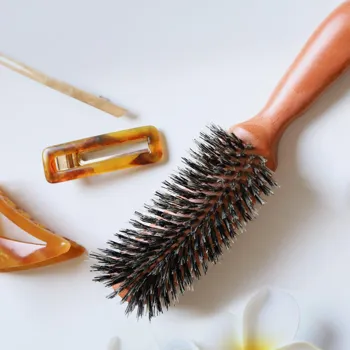
Pollution can deposit dirt and grime on your scalp and hair, so wash your hair regularly to remove these impurities. Humidity can make hair frizzy and unmanageable. Use a leave-in conditioner or serum to tame frizz and add shine. Excessive heat styling can also damage your hair.
Minimize the use of hair dryers, straighteners, and curling irons. When you do use heat styling tools, apply a heat protectant spray to shield your hair from damage.
Protect hair from sun & pollution by taking necessary steps
Protecting your from the Sun is crucial for protecting them from further damage. The environmental pollution in India also has been known to cause issues for the hair. So it becomes critical to adopt and apply the correct steps. It is always advisable to wear hair covering when outdoors.

Always consider cleaning the hair at frequent and regular intervals to remove the dust and grime.
Stress impacts hair health; manage stress for healthy hair
Stress can wreak havoc on your hair, leading to hair loss, premature graying, and scalp problems. When you're stressed, your body releases cortisol, a hormone that can disrupt the hair growth cycle. Find healthy ways to manage stress, such as yoga, meditation, or spending time in nature.
Regular exercise can also help reduce stress levels and improve scalp circulation. Getting enough sleep is crucial for overall health, including hair health. Aim for at least 7-8 hours of sleep per night to allow your body to repair and regenerate.
Stress affects hair health; manage with yoga, sleep
Stress is always a factor in the modern lifestyle of every individual. High stress levels would cause various issues for the body including the hair. If the stress level is high, it results in premature graying and hair loss.
To manage stress, one can engage in yoga, meditation and other forms of exercises. Sleep is also very crucial so ensure to take enough sleep by taking 7 to 8 hours of sleep.
Consistent routine leads to healthy, beautiful hair
By incorporating these practices into your daily routine, you can achieve a healthy scalp and lustrous hair that you'll be proud to show off. Remember, consistency is key, so stick to your hair care routine and be patient.
With a little effort and the right approach, you can unlock the secrets to strong, healthy, and beautiful hair.
AI Generated Content. Glance/InMobi shall have no liability for the content













